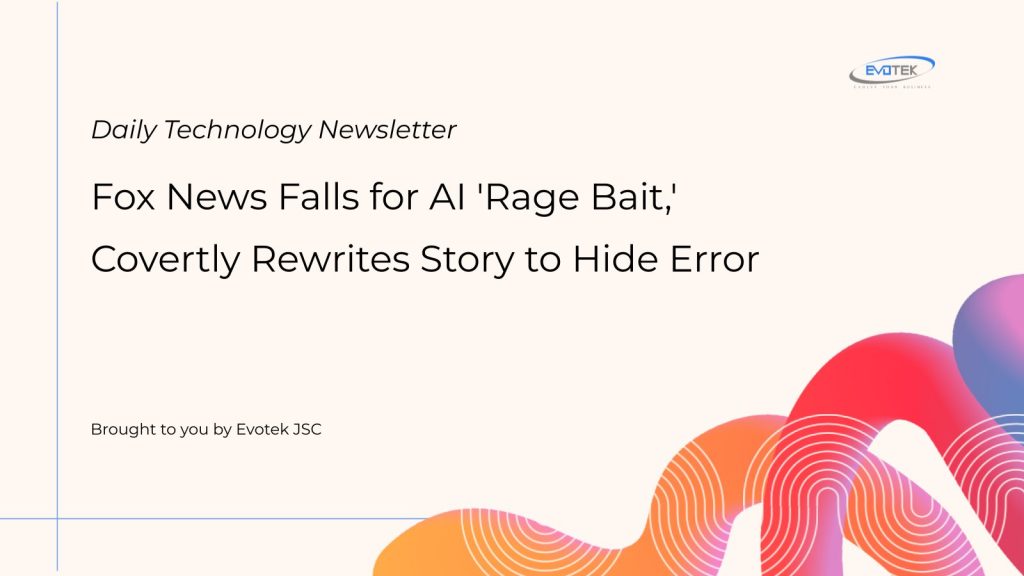A recent incident has cast a spotlight on the challenges of journalistic integrity in the age of artificial intelligence. Fox News reportedly published a story based entirely on AI-generated videos, then quietly rewrote it without a transparent correction, raising significant concerns about media ethics and the spread of misinformation.
The Fabricated Narrative: “SNAP Recipients Threaten Stores”
The controversy began when Fox News Digital published an article claiming that “SNAP beneficiaries threaten to ransack stores over government shutdown.” The sensational story was predicated on videos depicting women making these threats. However, it soon became clear that these videos were not authentic; they were entirely fabricated by artificial intelligence. The women depicted did not exist, nor did their complaints. It was digital fiction presented as fact, a blatant example of AI-generated misinformation.
Rather than performing basic fact-checking, the article, penned by production assistant Alba Cuebas-Fantauzzi, amplified what was easily verifiable as fake content. This oversight allowed an AI-created narrative to gain traction within a major news outlet.
The Covert ‘Correction’ and Lack of Transparency
When confronted with the truth, Fox News chose a problematic path. Instead of issuing a clear retraction or a comprehensive correction, the article was simply rewritten at the same URL, retaining the original timestamp. The original premise – that real SNAP recipients were making threats – was altered to suggest the article had always been about “AI-generated videos going viral.”
This stealth edit effectively memory-holed the original, erroneous report. Casual readers following the initial link would have no indication that the entire basis of the story had been fabricated. Phrases like “which appears to be generated by AI” were inserted, and quotes from “conservative commentators” who had also fallen for the fakes were removed. Yet, the rewritten version remained incoherent, still referencing “the same woman” making complaints, despite the non-existence of such a person.
Beyond a Simple Mistake: Editorial Bias Under Scrutiny
Critics argue that this incident is not merely an isolated error but a symptom of a deeper problem within Fox News’s editorial model. When a news organization builds its strategy around feeding audience biases, the incentive to verify facts can be overshadowed by the drive to amplify narratives that fit a predetermined worldview. This becomes particularly problematic when discussing sensitive, politically charged topics like SNAP benefits, especially amidst ongoing debates about government policy.
The practice of “nut-picking”—finding an isolated, often extreme, social media post and presenting it as representative of an entire group—has long been used to demonize marginalized communities. The emergence of AI-generated content now offers an even more potent tool for creating such “rage bait,” allowing fabricated extremism to be conjured on demand, bypassing the need to even find a real “rando wack job.”
An Inadequate Acknowledgment
An “Editor’s note” was eventually added to the bottom of the rewritten article, stating: "Editor’s note: This article previously reported on some videos that appear to have been generated by AI without noting that. This has been corrected."
However, this note fundamentally misrepresents the situation. The issue wasn’t a failure to “note” that videos were AI-generated; the entire article existed because Fox News believed the videos were real and that actual SNAP recipients were making actual threats. The story’s very foundation was false, making its continued presence, even in a revised form, a significant lapse in journalistic ethics and media transparency.
Systemic Failure and Accountability
This episode highlights a critical institutional rot: a news organization so committed to confirming its audience’s biases that it struggles to distinguish between genuine outrage and AI-generated fiction. When caught, the preference for a quiet rewrite over a clear correction or retraction demonstrates a troubling lack of accountability and a willingness to gaslight readers rather than admit and learn from a profound error. It underscores the urgent need for rigorous fact-checking and transparent editorial practices, especially as AI tools make the creation of convincing misinformation increasingly effortless.

 日本語
日本語 한국어
한국어 Tiếng Việt
Tiếng Việt 简体中文
简体中文